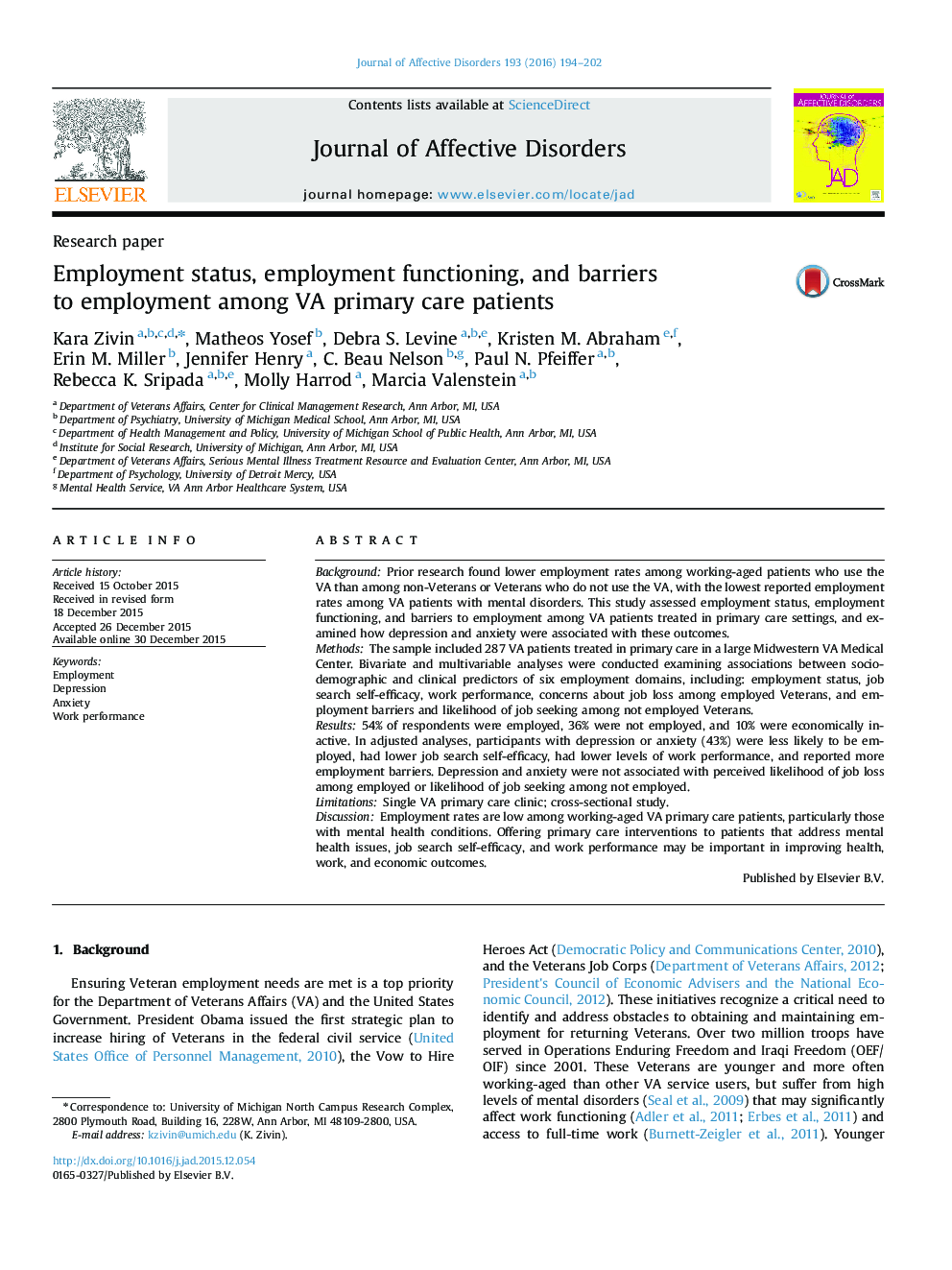| Article ID | Journal | Published Year | Pages | File Type |
|---|---|---|---|---|
| 6230464 | Journal of Affective Disorders | 2016 | 9 Pages |
â¢VA primary care patients with depression or anxiety are less likely to be employed.â¢Results suggest that depression and anxiety may be important factors influencing employment status, barriers to employment, job search self-efficacy, and work performance.â¢Depression and anxiety were not associated with perceived likelihood of job loss among employed or likelihood of job seeking among not employed.
BackgroundPrior research found lower employment rates among working-aged patients who use the VA than among non-Veterans or Veterans who do not use the VA, with the lowest reported employment rates among VA patients with mental disorders. This study assessed employment status, employment functioning, and barriers to employment among VA patients treated in primary care settings, and examined how depression and anxiety were associated with these outcomes.MethodsThe sample included 287 VA patients treated in primary care in a large Midwestern VA Medical Center. Bivariate and multivariable analyses were conducted examining associations between socio-demographic and clinical predictors of six employment domains, including: employment status, job search self-efficacy, work performance, concerns about job loss among employed Veterans, and employment barriers and likelihood of job seeking among not employed Veterans.Results54% of respondents were employed, 36% were not employed, and 10% were economically inactive. In adjusted analyses, participants with depression or anxiety (43%) were less likely to be employed, had lower job search self-efficacy, had lower levels of work performance, and reported more employment barriers. Depression and anxiety were not associated with perceived likelihood of job loss among employed or likelihood of job seeking among not employed.LimitationsSingle VA primary care clinic; cross-sectional study.DiscussionEmployment rates are low among working-aged VA primary care patients, particularly those with mental health conditions. Offering primary care interventions to patients that address mental health issues, job search self-efficacy, and work performance may be important in improving health, work, and economic outcomes.
